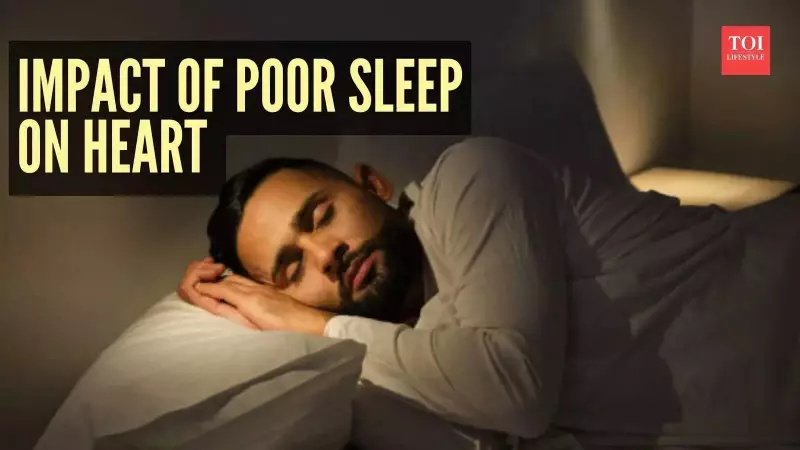
Are you tossing and turning at night? That restless sleep might be doing more than just leaving you groggy in the morning - it could be putting your heart in serious danger. Recent medical research has uncovered a disturbing connection between poor sleep quality and life-threatening heart conditions.
The Silent Nighttime Danger to Your Heart
Scientists have discovered that inadequate or disrupted sleep doesn't just make you tired - it actively damages your cardiovascular system. When you consistently fail to get quality rest, your body undergoes changes that can lead to:
- Irregular heartbeats (arrhythmias) that can be potentially fatal
- Increased risk of heart attacks and cardiac events
- Elevated blood pressure and inflammation markers
- Stress hormone imbalances that strain your heart
Why Your Heart Suffers When You Don't Sleep
The mechanism behind this dangerous connection lies in how poor sleep affects your body's fundamental processes. During quality sleep, your heart rate naturally slows down, blood pressure drops, and your cardiovascular system gets much-needed rest. When this recovery period is disrupted night after night, the cumulative stress takes a heavy toll.
"Poor sleep quality creates a perfect storm for heart problems," explains the research. "Your body never gets the chance to properly reset and repair, leading to chronic inflammation, hormonal imbalances, and increased strain on your heart muscle."
Warning Signs You Shouldn't Ignore
How do you know if your sleep problems are putting your heart at risk? Watch for these red flags:
- Waking up frequently throughout the night
- Difficulty falling asleep despite feeling tired
- Waking up feeling unrested, even after 7-8 hours in bed
- Daytime fatigue and irritability
- Loud snoring or gasping during sleep
Protect Your Heart Tonight: Simple Changes That Make a Difference
The good news is that improving your sleep quality can significantly reduce these cardiovascular risks. Here are evidence-based strategies to help you sleep better and protect your heart:
- Establish a consistent sleep schedule - even on weekends
- Create a relaxing bedtime routine without screens
- Keep your bedroom cool, dark, and quiet
- Avoid caffeine and heavy meals close to bedtime
- Consider sleep tracking to identify patterns and issues
Remember: Quality sleep isn't a luxury - it's a medical necessity for your heart health. If you're experiencing persistent sleep problems, consult with a healthcare professional to address underlying issues before they impact your cardiovascular system.





